Our immune system is complex and involves numerous defense mechanisms. Proper hygiene practice and following the advice issued by the government are the main steps in avoiding infection. A balanced diet and adequate fluid/water intake may help you protect yourself during this lockdown.
- Prepare simple meals at home with the guide of the Healthy Plate concept which provides essential amount of energy, protein, vitamins and minerals that the body needs.
- Avoid binge-eating and snacking on unhealthy snacks. Practice constant meal timings as you are free to plan a proper mealtime at home.
- Ensure enough water intake to stay hydrated. The Recommended Nutrient Intake for Malaysia is six to eight glasses (1.5L to 2.0L) a day.
- Reduce fast food and processed food intake to prevent consumption of excessive sodium and fat.
- Reduce gravy intake or eliminate the gravy from canned foods if you have no other options. For example, only take the fish out of canned sardines and prepare the sauce with fresh tomatoes and onions.
- Reduce salt. Use herbs and spices instead. Also, reduce your oil intake. Restrict sugar and alcohol consumption too.
- Avoid a sedentary lifestyle. Do simple exercises in your home compound.
- Don’t waste food. Prepare meals according to demand. Don’t share food off your plate with family members. Don’t even share your cutleries or utensils.
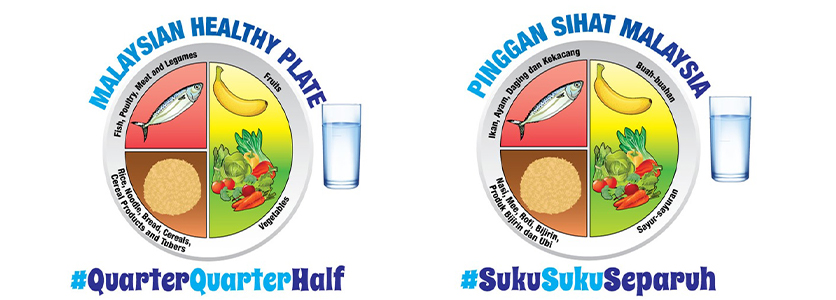
A Balanced Diet
According to Malaysia Dietary Guidelines, a balanced diet is defined as a diet that combines foods with a proper balance of nutrients including fruits, vegetables, grains, meat and dairy. We cannot depend on only one superfood or supplement to help our immune system. In fact, we need to have a complete and balanced diet to strengthen it.
Protein
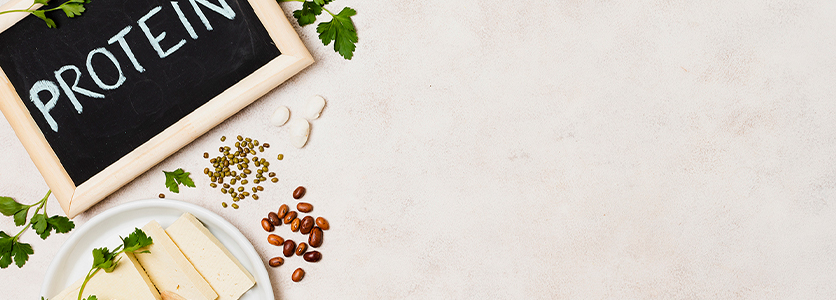
During this lockdown period, please do ensure that you have enough protein sources such fish, poultry, lean meat, seafood, soy products (tofu and tempe, for instance) as well as beans/lentils. Protein is needed for cell and tissue repairs/regeneration. Indirectly, this secures our immune system mechanism. This is especially for mucous membrane regeneration which produces immune cells as the body’s first line of defense. An example of a sufficient protein intake is one palm-sized meat/chicken/fish or one piece of tofu (200g) per main meal is suggested for generally healthy people (those without kidney diseases).
Carbohydrate
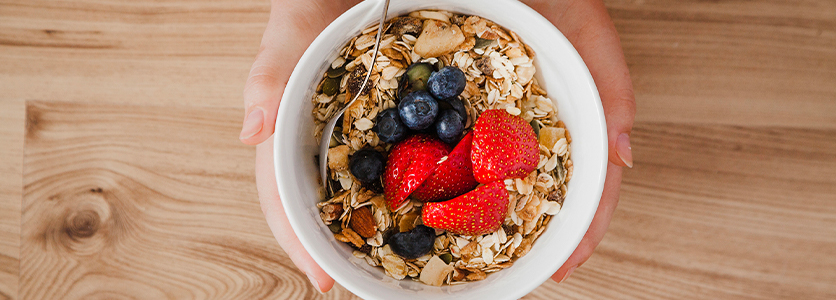
Eat adequate rice and other cereal products (preferably wholegrain) and tubers because carbohydrate is our main source of energy in daily life. The basis for most meals should include unrefined cereals or minimal intake of processed cereals and grains (whole grain or whole meal), where fortified cereals and grains are recommended (Malaysia Dietary Guidelines, 2010). Thus, an appropriate amount of carbohydrate is essential to sustain our daily life’s needs.
Fruits and vegetables
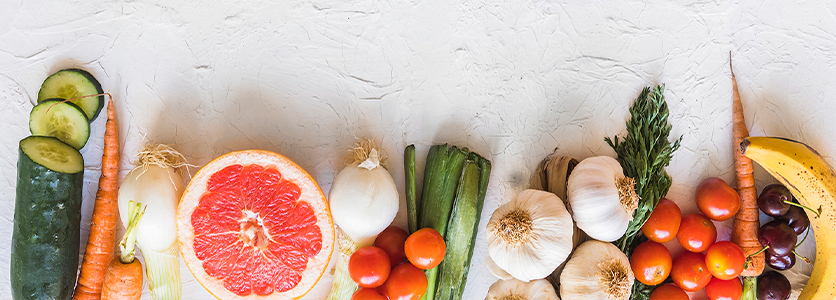
Fruits and vegetables provide vitamins and minerals that are needed to secure our immune system, including Vitamin A, B, C, D and E. Iron and zinc that play an essential role in our immune system are commonly found in food from animal sources.
The vitamins
Vitamin A is found abundantly in spinach, broccoli, carrots, potatoes, bell peppers, liver, cod liver oil as well as vegetables and fruits that are dark yellow and orange in colour. Vitamin A is also needed to strengthen the immunity barrier as it is involved in mucous secretion and the organ protective lining (epithelium) formation that defends against pathogen invasion especially for both respiratory tract and intestine mucus layer. On top of that, vitamin A is also needed to form blood cells (macrophage) required in the immune system (Huang , Liu , Qi, Brand, & Zheng, 2018).
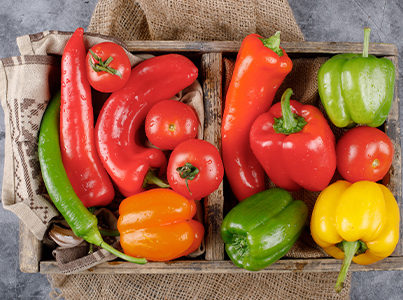
Other vitamin sources are Vitamin B6 in eggs, lean meat, seafoods; Vitamin B9 in soy and soy product; Vitamin B12 in yogurt and cheese. Vitamin B helps in regulating immune responses in terms of cell production differentiation and the activation of white blood cells (Mikkelsen, Stojanovska, Prakash, & Apostolopoulos, 2016).
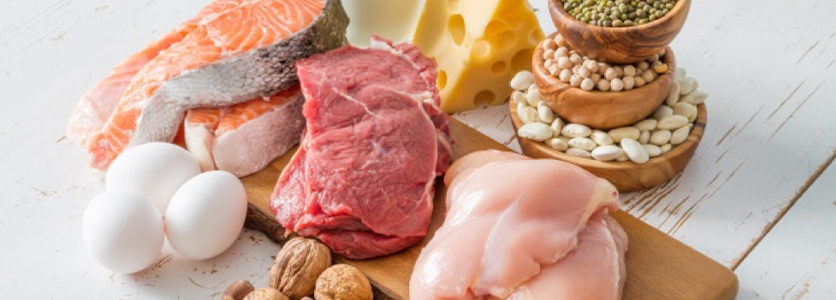
Vitamin C is well-known for its antioxidant properties. This helps in boosting the immune system. Vitamin C supports the outer layer of our protective surface against pathogens. It promotes the oxidant-scavenging activity of the skin and supports various cellular functions of the immune system (Carr & Maggini, 2017). Vitamin C is common in citrus fruits, guava and dark green vegetables.
Vitamin D is derived from sun exposure. Dietary vitamin D is found in mushrooms, potatoes, salmon, mackerel, sardines, eggs and dairy products. A Vitamin D deficiency will increase susceptibility to infection as the vitamin D receptor is expressed on immune cells (Aranow, 2011).
Vitamin E in found in vegetable oils such as sunflower, safflower, corn and soybean oil, and nuts such as almonds, peanuts and hazelnuts/filberts. It is another powerful antioxidant that has the ability to modulate the host’s immune functions. It helps in the differentiation of immature immune cells in thymus (Moriguchi & Muraga, 2000).
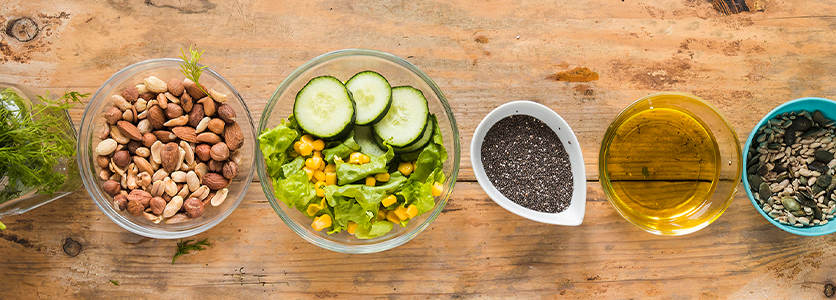
The minerals
Iron which is heme-iron from animal-sourced foods including liver, red meat and egg yolk, is important to prevent anemia. Anemia depreciates the body’s immune system (Viana, 2011). Meantime, iron can also have direct effects on the growth of microbial pathogens as it is part of the component of the innate anti-microbial defense mechanism (Cherayil, 2010).
Zinc is rich in shellfish, red meat, eggs, liver and nuts. It is an antioxidant and anti-inflammatory nutrient. Studies show that proper zinc supplementation decreases oxidative stress markers and the generation of inflammatory cytokines (Prasad, 2008). Zinc deficiency leads to a negative impact of the immune cells.
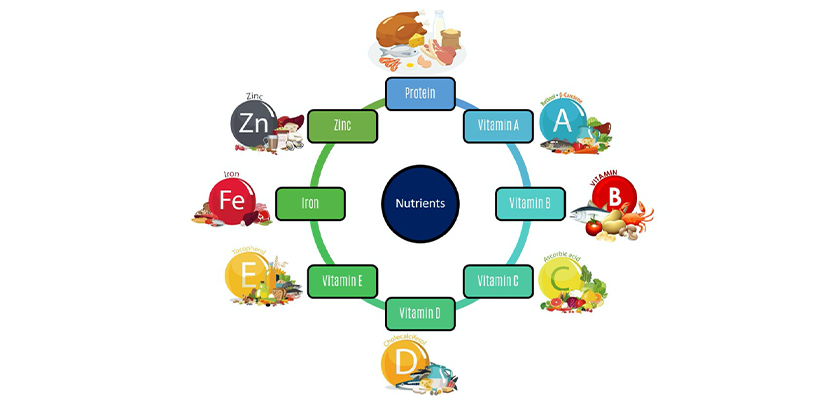
Bibliography
Aranow, C. (2011). Vitamin D and the Immune System. Journal of Investigative Medicine, 881-886.
Carr, A., & Maggini, S. (2017). Vitamin C and Immune Function. Nutrients.
Cherayil, B. (2010). Iron and immunity: immunological consequences of iron deficiency and overload. Archivum Immunologiae et Therapiae Experimentalis.
Huang , Z., Liu , Y., Qi, G., Brand, D., & Zheng, S. (2018). Role of Vitamin A in the Immune System. Journal of Medical Medicine. Mikkelsen, K., Stojanovska, L., Prakash, M., & Apostolopoulos, V. (2016). The effects of vitamin B on the immune/cytokine network and their involvement in depression. Maturitas, 58-71.
Moriguchi, S., & Muraga, M. (2000). Vitamin E and Immunity. Vitamins and Hormones.
Prasad, A. (2008). Zinc in Human Health: Effect of Zinc on Immune Cells. Molecular Medicine, 353-357.
Viana, M. (2011). Anemia and infection: a complex relationship. Revista Brasileira de Hematologia e Hemoterapia, 90-92.
Share:
Was this article helpful?
Share:
Was this article helpful?
Health Packages
Elevate your health with tailored health packages at Columbia Asia Hospital. Take charge of your health journey today.
AIA Policyholders Self-pay Benefits
Pink October 2025
From
RM80
HLA Policyholders Promo: Influenza Vaccination
RM65
Find Out MorePink October 2024
From
RM80

